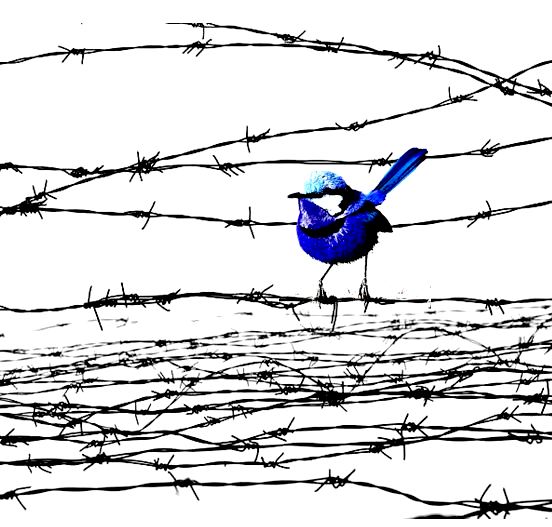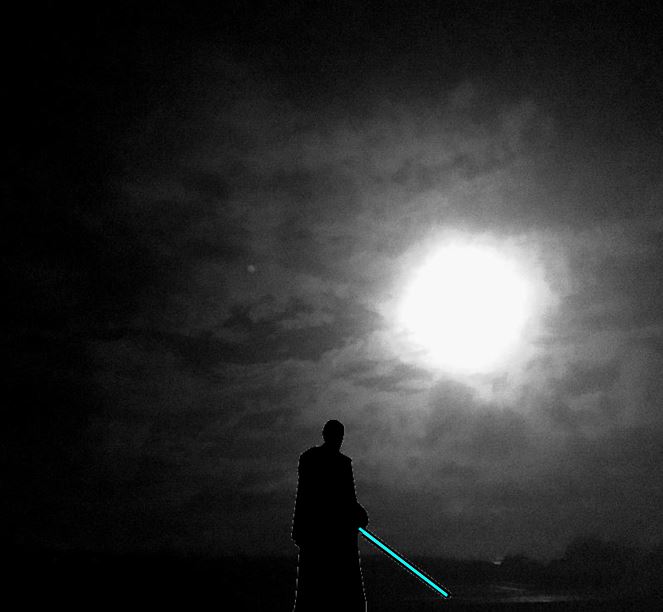
“There is no Ignorance there is Knowledge” – Jedi Code
“There is, he said, only one good, that is, knowledge, and only one evil, that is, ignorance” – Socrates
Amathia
People do stupid things. We can all admit to behaviour that in retrospection and on reflection seems illogical, irrational, self-destructive and just plain stupid. Being alcoholic I am qualified to attest to this. Looking at my past I could easily write the book “On Stupidity”. I still remind myself that people are not purposely stupid any more than I was. People just do stupid things. To quote Forrest Gump “Stupid is as stupid does”.
Dietrich Bonhoeffer, the German pastor and Anti-Nazi dissident, wrote that while the reasoned may protest against “Evil” and be inoculated against it there is no such defense against the person who does stupid. Even the person who does “evil” feels a unease with their acts (unless of course the person is a psychopath). “Evil” is however a result of stupidity and ignorance.
The Greeks called such “Stupidity” Amathia, a sort of preventable intelligent “Stupidity”. Amathia is different to the “dull witted” who lacks the mental capacity to know virtue from vice. Socrates considered Amathia the root of evil acts in people. Epictetus described Amathia as anti-wisdom. A spiritual malady that afflicts those that could know and should know better. Worse than ignorance, Amathia is choosing not to know, the worst type of stupidity.
A Stain
Stupidity never receives a clinical description or medical diagnosis. As an affliction it resides outside the realm of psychology. In the Army, “Stupid” or variations of was the worst label one could suffer. Being labelled “Stupid” was like a stain. It marked the unfortunate as “incompetent, unreliable, a liability and a bullet magnet”. “Stupid” was someone who could not be taught because he was incapable. Unable to learn not because of a lack of ability but because of a lack of willingness. Such was a lost cause, a “Cluster”, a “Gomer Pyle”.
Reading Bonhoeffer’s description of stupidity I am stunned by the familiarity to my own behaviour around alcohol. I never considered myself “Stupid” however I did stupid things and refused to learn from them. I was a “Cluster” in the true sense of the word. This flaw was a stain and it touched everyone who came close to me.
Defenseless
Bonhoeffer wrote a letter while awaiting his fate in a Nazi prison. I will quote extensively from it as it serves as a wake up call. Bonhoeffer writes “against stupidity we are defenceless” and goes on; “Neither protest nor the use of Force accomplish anything here; reasons fall on death ears”
Most alcoholics are defenseless against the power of alcohol. They are hopeless when it comes to being convinced by others of their condition. Loved one’s and friends try to intervene without success. Employers, work mates and medical professionals try to reason with them. All efforts avail nothing.
Not only addicts are affected. People in general tend to grasp on to their system of beliefs and tightly held opinions that an alternate view cannot and will not be entertained. Extremists come in many shades but all share a common refusal to budge on their beliefs even in the face of evidence to the contrary. Some are even prepared to die for them.
“facts that contradict one’s prejudgment simply need not be believed- in such moments the stupid person even becomes critical – and when facts are irrefutable they are just pushed aside as inconsequential, as incidental.”
Ignoring Evidence
Even in the face of declining health, lost employment, repossessed house, broken family and destitution an alcoholic will continue to insist that the source of his problems is the fault of others. She will refuse to admit fault or accept being alcoholic. Despite the inevitable cognitive dissonance suffered the person will reject all evidence. This denial and reinforcement of enabling behaviour counteracts any impetus for change.
We call this person sick. Indeed they have a mental, physical and spiritual illness rooted in Amathia.
How often in other areas of life do we put our blinkers on and cherry pick the truth believing only what we want to hear and rejecting opposing views and contradictory evidence as “false”, “fake” or “baseless”? We would rather ignore and reject out of hand ideas or evidence that challenges our perceptions than give them a moment’s thought.
The Belligerent
“In all this the stupid person, in contrast to the malicious one, is utterly self-satisfied and, being easily irritated, becomes dangerous by going on the attack.”
When we are pushed to consider a view point that challenges our sense of self and potentially destroys everything we believe we can become extremely defensive. Pushed hard enough we may defend our beliefs to the point of violence. It happens with addicts who are forced in to a corner.
Violence is also used by people who have inflexible and dogmatic views on religion, politics and other contentious issues. Are our valued ideas and concepts worth defending or advancing to the point we need to attack others who challenge us? Do we have the right to smother dissenting views and criticism?
A Contagion
Somehow people “become stupid” over time. Progressively they adopt attitudes and beliefs that eventually translate in to habits and character. The element of “Stupidity” is demonstrated in the traits described above. The outcome for an alcoholic is gradual loss of control of their lives and eventual descent to a personal hell. I know this because I lived it.
Stupidity is contagious. Bonhoeffer believed that those that felt a strong need to belong to a group whether social, political or religious tended to be more willing to accept ideas than those who are happier to find their own path. Ideas and attitudes are fueled by people who share similar mind-sets and views. As a drinker I sought out Drinkers to socialize and associate with and avoided people who did not drink. People tend to seek out the company of those that validate their character and values and avoid those who don’t.
In many ways recovery is a “Solo” mission. We can get advice and direction from people and seek what fits our own individual needs. There is no “one size fits all”. Most spiritual paths and philosophies are similar. There is a community but we are free and encouraged to go out and find our own way. There is nothing wrong with embracing an ideology however never grasp it so tight that it becomes a tether to the mind and soul. Be free to explore and seek new ideas and thoughts.
“Upon closer observation, it becomes apparent that every strong upsurge of power in the public sphere, be it of a political or of a religious nature, infects a large part of humankind with stupidity.”
A Modern Affliction
Bonhoeffer was imprisoned for many years by the Nazis. Despite his long incarceration Bonhoeffer believed that “stupidity” more than “evil” attracted many people to the Nazi doctrine. The rise of populism, “identity politics”, the “social justice warrior”, nationalism, religious extremism and “alt-left” and “alt-right” movements are all facets of the same thing when observed impartially from above. “Right” and “wrong”, “good” and “bad” are subjective.
We live in a world that is becoming increasingly polarized, intolerant and “stupid”. The argument for reasoned discourse has been drowned out by the noise of divisiveness. People are being conditioned not to think, not to question. At the same time supporters of opposing views claim the moral high ground and possession of the truth. In truth the lack self ownership and independence of thought.
“it seems that under the overwhelming impact of rising power, humans are deprived of their inner independence, and, more or less consciously, give up establishing an autonomous position toward the emerging circumstances.”
Independence
Alcoholism like any type of dependence is a complete loss of self-autonomy and independence. It is also attachment and ego run riot. We forget how to think critically and with reason. Our actions are guided by something stronger than our own free will. Our inner world no longer belongs to us.
Ask yourself what are you dependent on? People, places, things, ideas and beliefs can all be our sources of attachment and dependence. Despite ourselves we find our own values and ideas are no longer our own, we are simply reciting the ideas and values of others as our own and “preaching to the converted”.
“In conversation with him, one virtually feels that one is dealing not at all with a person, but with slogans, catchwords and the like that have taken possession of him. He is under a spell, blinded, misused, and abused in his very being.”
Self Wisdom
A person who is self-reliant, independent and emotionally intelligent and capable of critical analysis is unlikely to follow a “false prophet”. Our ego and fears seems to push as that way. Most people want to be part of the crowd. No one wants to be a contrarian. People want to be able to give themselves a label which expresses who they are and what they value. I was no different. Being alcoholic I made many claims and had an inflated sense of self-importance. My disease and the problems it presented defined me.
Recovery has taught me how to be self-reliant and independent. I can differentiate between what is in my control and what it outside of it. My inner world belongs to me. I have command over my proper faculties, my thoughts, perceptions and responses. The tone and attitude I bring in the day is up to me. Opinions and beliefs are mine alone. My spirituality is unique and my own. I choose my values and the principles I live by.
I have little control over people and circumstances. There may be some influence but the world is largely out of my control. Even my body is not entirely under my control. I can choose what to eat and drink from what is before me. My health may fail despite best efforts to be healthy and fit. Cancer or heart disease may still cut my years short. I am my own being and belong to no one but myself.
“Having thus become a mindless tool, the stupid person will also be capable of any evil and at the same time incapable of seeing that it is evil. This is where the danger of diabolical misuse lurks, for it is this that can once and for all destroy human beings”
Evil is a Symptom
Bonhoeffer witnessed with dismay the rise of the Nazi Party in Germany. Being an opponent of Hitler he was imprisoned and persecuted. Accused of association in the plot to kill Hitler he was interned in a concentration camp and executed during the closing days of the war. Bonhoeffer would not have justified killing, even Hitler. Violence was not in his philosophy.
Dietrich Bonhoeffer suggested that the nature of the “Stupid” person is not an “intellectual” deficit but a “human” one. People are not born “stupid” any more than they are born “evil”. Some people are less intelligent than others, even “dull”, but are less “Stupid” in their nature than those with high intellect. History has shown some remarkably talented and brilliant minds who were ultimately betrayed by their own “Stupidity”.
People believe “Evil” is an independent and a tangible concept. That it has a life of its own. “Evil” is what most people perceive to as the really bad things that people do. No one considers themselves to be inherently “evil”. Bonhoeffer believed that people were not evil but only capable of doing evil because of their ignorance. Evil is a symptom of Socrates’s Amathia. Bonhoeffer also believed people could change for the better.
‘Yet at this very point it becomes quite clear that only an act of liberation, not instruction, can overcome stupidity”
Liberation
In many ways Bonhoeffer was a real world Jedi Master. Bonhoeffer challenged the Lutheran church with his ideas of spirituality and religiosity but did not alienate himself from it. His views and philosophy of non-violent resistance influenced Martin Luther King, anti-communism in East Europe and the anti-Apartheid movement in South Africa. In his letter from prison Bonhoeffer offered his friends some advice; “Liberation can overcome stupidity“.
More than 2200 years before Bonhoeffer, Socrates suggested the same thing. Salvation from the worst flaw, the real human evil, Amathia is through the spiritual and psychological liberation that self knowledge brings.
Each of us has the key to our own liberation. Our own reasoned choices determine who we are. We can submit to our own vices or we can embrace virtue. Do we choose to abide by the will of others or make up our own minds? Do we walk the path we want for ourselves or do we follow others blindly? At the same time we can be understanding and compassionate with others, even the “Stupid” that we meet everyday.
In the week the world remembers the Holocaust it is perhaps timely that we reacquaint ourselves with the word Amathia.







